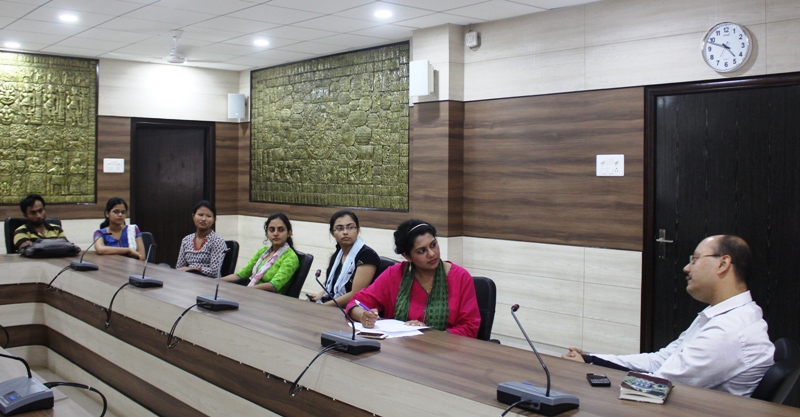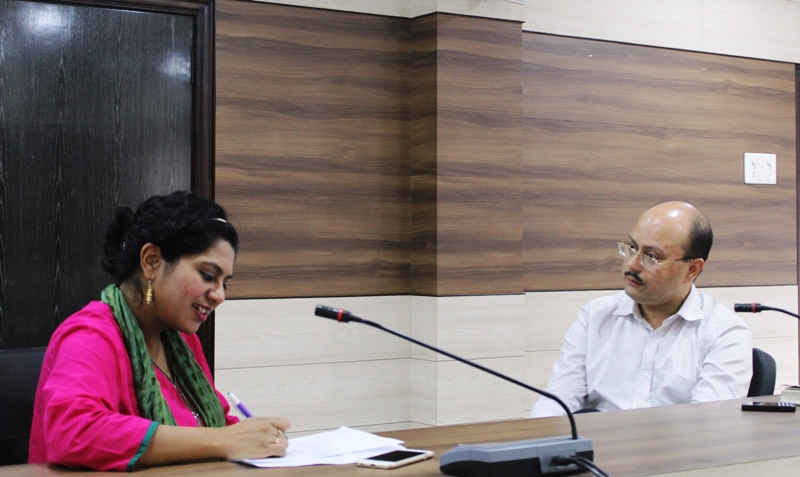A Scholars-in-residence program was held in the Conference Hall of Vishrantha- the Dibrugarh University Guest House on 19 June, 2015 for interaction of the research scholars of Dibrugarh University with Dr. Diganta Mukherjee, an eminent Economist and Mathematician from the Indian Statistical Institute (ISI), Kolkata.

Addressing research scholars of different educational backgrounds, Dr. Mukherjee first lucidly explained his doctoral research which was in the subject area of Welfare Economics. Touching on the work of Nobel Laureate Amartya Sen- an outstanding economic theorist, he explained how welfare economics was concerned with the design of different mathematical models for rapid and efficient decision-making for an equitable distribution of resources. These models find application in organizations like the World Bank, and are used to relate income and development in United Nations Development Programme Reports as well as design Millennium Development Goals of different projects.
Dr. Mukherjee then briefly spoke on the area of Financial Mathematics in which he is actively engaged in research at present- and how their mathematical models find direct application in real-life decision-making scenarios, e.g. ‘financial engineering’ in Stock markets. He recommended reading of different titles by author John C. Hull for a corporate interest in stock market trading, and Sheldon Natenberg for a more advanced knowledge on trading strategies and techniques.

Winding up a very interesting talk, Dr. Mukherjee’s advice to mathematics scholars was to design mathematical models that could address issues in real-life scenarios and would thus have an impact onsociety in general. In this context, he highlighted collaborative research work involving himself at the Indian Statistical Institute and Dr. Surajit Borkotokey of the Dept. of Mathematics, Dibrugarh University, on the mathematical modeling of the ‘Influence of Social Networks on Consumers’ behavioural patterns’. He also acknowledged an idea forwarded by the Hon’ble Vice Chancellor of Dibrugarh University, Prof. Alak K. Buragohain, in design of a mathematical model for decision-making under physical constraints, related to setting up of a facility in North-east India by taking into account not just the economic and social implications of it but also the environmental perspective in implementation of that decision. The research scholars professed themselves enlightened with new perspectives on the real-life applications of Mathematics at the end of this lively interaction.
